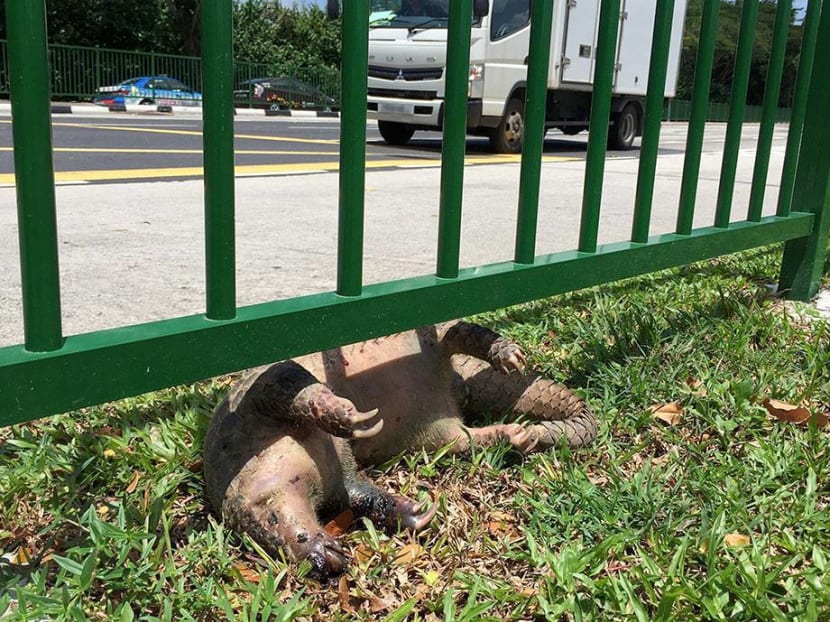Critically endangered Sunda Pangolin found dead in Mandai after being hit by vehicle
SINGAPORE — The carcass of a Sunda Pangolin, a “critically endangered” species according to the Singapore Red Data Book 2008, was found along a road in the Mandai area yesterday (Feb 25).

The carcass of the dead pangolin found at Mandai. Photo: Lee Kong Chian Natural History Museum/Facebook
SINGAPORE — The carcass of a Sunda Pangolin, a “critically endangered” species according to the Singapore Red Data Book 2008, was found along a road in the Mandai area yesterday (Feb 25).
The Lee Kong Chian Natural History Museum said on Facebook that it was alerted to the carcass by a Mr Benjamin Lee and Mr Raem Tan.
According to the museum, the pangolin was found with broken scales and bruises. Preliminary inspection indicated that vehicular impact was the cause of the pangolin’s death, the museum added.
The Sunda Pangolin or Malayan Pangolin (Manis Javanica) are a native species of South-east Asia, according to the National Parks Board (NParks) website. In Singapore, they are mainly distributed in the Central Catchment Nature Reserve and Bukit Timah Nature Reserve, but can also be found in forested areas in Bukit Batok, the Western Catchment Area, and on the islands of Pulau Ubin and Pulau Tekong.
The NParks website added that Sunda Pangolins may sometimes wander into residential areas from nearby woods.
As the pangolins move slowly, they are also often injured or killed by vehicles when they stray off too far from the forested areas onto roads, NParks wrote.
Globally, pangolins are also poached for its meat and scales. Due to its low fecundity rate of only 1 to 2 offspring per year, the global pangolin population is depleting at a much faster rate than it can recover, NParks added.
The carcass found yesterday has been recovered by the Lee Kong Chian Natural History Museum for scientific study. The museum on Facebook also urged the public to contact them at https://lkcnhm.net/dead-wildlife/ when dead wildlife are spotted.
“Do not let them die in vain, as they are valuable for science,” the museum wrote.






